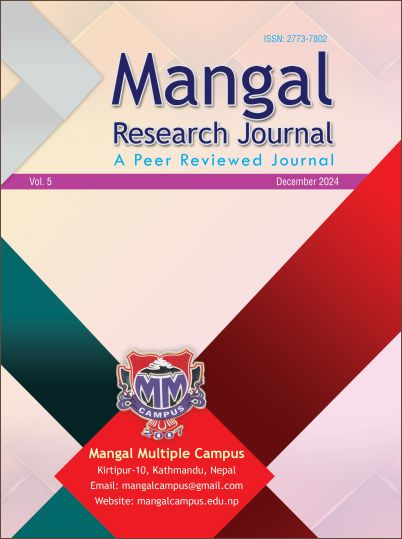Abjection Questioned: Reterritorealized Self in I am Malala
DOI:
https://doi.org/10.3126/mrj.v5i01.73531Keywords:
Abjection, parenting, paternal influence, self, Talibans, young adultAbstract
This study examines the source of influence on the formation of Malala’s self in her memoir I Am Malala, guided by the question: Why is Malala the way she is? We have employed Julia Kristeva’s concept of the abjected self to analyze how experiences of discrimination and degradation shape individuality. This qualitative research design analyzes narrative pieces from the memoir to explore the concept of the abjected self. We used convenience sampling to select I Am Malala and employed textual analysis to examine its narrative events and themes related to the abjected self. The analysis was organized around the triangulated themes of paternal influence, challenging abjection, and firm convictions. To validate these themes, we incorporated the views of critics, which further emphasized the formation of individuality. The themed analysis revealed that an individual’s behaviors are shaped by their surroundings, particularly by close relationships such as those with parents. Malala’s father consistently emphasized the importance of education and declared that his daughter would be as free as a bird, significantly contributing to her convictions. This study concludes that without her father's involvement in shaping her beliefs, Malala may not have become the influential figure she is today and could have led an ordinary life as a Muslim girl. The insights from this analysis can serve as a valuable resource for researchers exploring the formation of self and the influences that shape individual identities.




